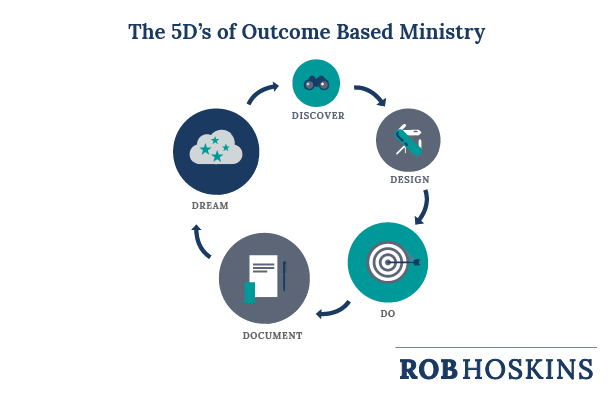In our rapidly changing world, only the most cutting edge products and services can compete. The same is true for the modern-day Church and its approach to missions.
One exciting innovation that has been highly successful in helping advance the gospel is called Outcome Based Ministry (OBM). Having seen firsthand how current evangelization methods are outdated and ineffective, I realized it was time for an upgrade.
My epiphany took place on a trip to Swaziland in 2006. There I was struck with the reality that Christian ministries had been working in the country for literally hundreds of years, yet many Swazi Christians attend church on Sunday and visit a Shaman later in the week. At that moment, I realized that we needed to learn more about the specific customs and challenges of each country we are attempting to evangelize to ensure true life transformation is taking place; not just increasing activity or religious affiliation. That eye-opening trip was the catalyst for the Spiritual State of the World’s Children research initiative, which is what we use to measure the effectiveness of the tools and systems we create to minister within each country.
I’m an American, and freely admit that I love numbers. Numbers can tell me how many souls claimed to be saved, how many converts were baptized, the number of churches planted, and how many pieces of literature were handed out. But numbers can’t tell the story of a God-touched, transformed life.
Only God knows whether or not a heart has truly been changed, but we can—and do—measure how a teen was behaving before encountering one of our programs or products and how they behave after. How do we do that? We ask them 214 questions to evaluate if their lives have changed; “are you doing better at school, hurting others less, have a better overall outlook on life, less substance use, more engagement with Scripture?”, etc.
After the Swaziland trip, we revamped our practices to include measuring data on the outcomes of our efforts and adjusting our mindset and methods accordingly.

For OneHope, that means measuring not only how many booklets are given out, but carefully watching and reporting what effect the words and pictures have on individuals, churches, communities and regions. [easy-tweet tweet=”We cannot have outcomes without outputs”]We cannot have outcomes without outputs, but we must linger a little longer and look a little deeper to determine whether we have successfully initiated life change and transformation rather than simply completing an activity.
Since implementing OBM strategies, we have documented an overwhelming number of successful life-change stories through the studies we do after providing an effective experience with God’s Word. Documenting these stories fuels our passion to advocate this exciting shift in how we think about and do missions.
When you find a new product that works, what do you do? You share it, tell anyone who will listen, publish it on all your social media outlets and show the world! Well, that’s exactly how I feel about Outcome Based Ministry. It works! And I want to broadcast it, tell everyone, and watch it help others multiply their efforts and yield more fruitful ministries. I believe in this groundbreaking idea so much that OneHope has stepped out in faith to make all of its research available to any organization for free. Check it out here.
How could tracking and measuring the effectiveness of your ministry’s efforts change the way you do things? What does “success” look like in your ministry? Are you achieving it?



